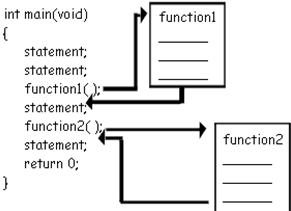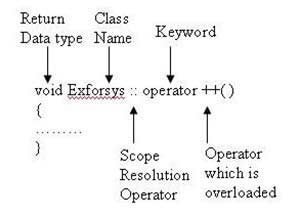
C++ Programming Course Details
C++ is a fundamental course recommended for all the students whose goal is to understand the concept of Programming language and its implementation in the real time world. We Cover C++ to give a firm foundation for a career as systems programmer.
C++ is a static, free-form, (usually) compiled, multi-paradigm, mid-level general-purpose programming language. Many of the operating systems, system drivers, browsers and games of today are using C++ as their core language. That makes C++ one of today's most popular languages. It is safe to say that C++ is irreplaceable with the use of C++ in the development of modern games, operating systems, browsers, and much more. Since C++ is a language of mid-level, you will write code that directly interacts with the computer's internal hardware. C++ is a language developed by Bjarne Stroustrup for general-purpose object-oriented programming (OOP) and is an extension of the C language. Therefore it is possible to code C++ in a "C style" or "object-oriented style." It can be coded in either way in some scenarios and is therefore an effective example of a hybrid language.
C++ Programming Highlights

Description
Objective
Prerequisite
 What is C++? , Why C++?
What is C++? , Why C++?  C and C++
C and C++  Exception Handling
Exception Handling  Object Oriented Programming
Object Oriented Programming  Standard Template Library
Standard Template Library
 Types
Types  Booleans
Booleans  Integer Types
Integer Types  Floating-Point Types
Floating-Point Types Sizes
Sizes  Void
Void  Enumerations
Enumerations  Declarations
Declarations


 Pointers
Pointers  Arrays
Arrays  Pointers into Arrays
Pointers into Arrays  Constants
Constants  References
References  Pointers to void
Pointers to void  Structures
Structures
 A Deck Calculator
A Deck Calculator  Operator Summary
Operator Summary  Statement Summary
Statement Summary  Comments and Indentation
Comments and Indentation
 Function Declarations
Function Declarations  Argument Passing
Argument Passing  Value Return
Value Return  Overloaded Function Names
Overloaded Function Names  Default Arguments
Default Arguments  Pointer to Function
Pointer to Function  Macros
Macros
 Namespaces
Namespaces
 Exceptions
Exceptions


 Separate Compilation
Separate Compilation Linkage
Linkage  Using Header Files
Using Header Files  Programs
Programs
 Classes
Classes  Access Control
Access Control  Constructors
Constructors  Member functions
Member functions Static members
Static members  Destructors
Destructors Memory allocation
Memory allocation  Member initialization
Member initialization
 Introduction
Introduction  Operator Functions
Operator Functions A Complete Number Type
A Complete Number Type  Conversion Operators
Conversion Operators  Friends
Friends  Large Objects
Large Objects  Essential Operators
Essential Operators  Subscripting
Subscripting  Functions Calls
Functions Calls  Dereferencing
Dereferencing  Increment and Decrement
Increment and Decrement  A String Class
A String Class
 Introduction
Introduction
 Derived Classes
Derived Classes
 Abstract Classes
Abstract Classes
 Design of Class Hierarchies
Design of Class Hierarchies
 Class Hierarchies and Abstract Classes
Class Hierarchies and Abstract Classes

